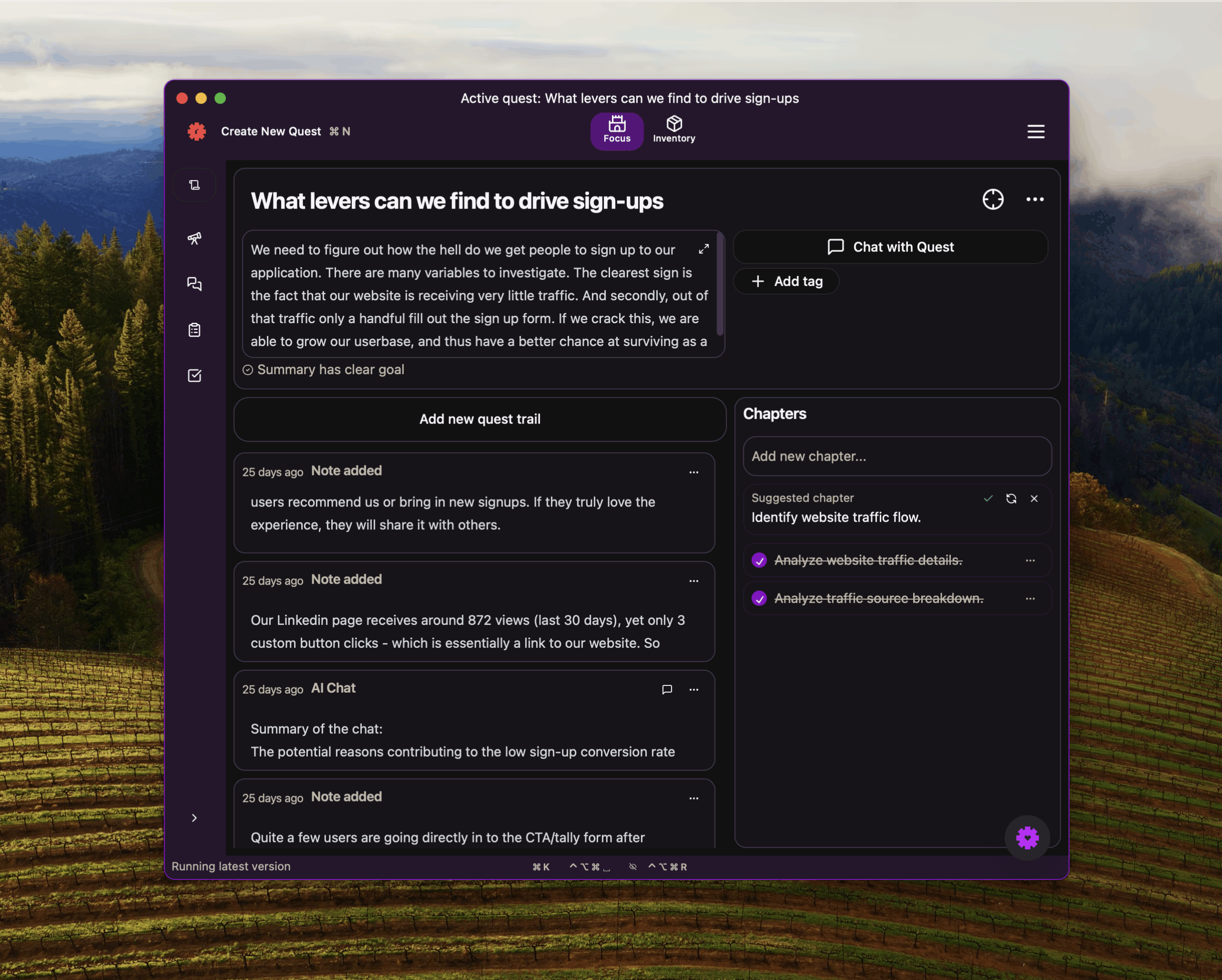Table of Contents
Overview
In the world of analysis, scattered notes and disorganized thoughts can be the bane of productivity. Reconfigured aims to solve this problem. It’s a journal application specifically designed for analysts, transforming a chaotic mess of information into structured, retrievable documentation. If you’re tired of losing valuable insights in a sea of jumbled notes, Reconfigured might just be the solution you’ve been searching for. Let’s dive into what makes this tool tick.
Key Features
Reconfigured boasts a powerful suite of features tailored to the needs of analysts. Here’s a breakdown of what you can expect:
- Auto-organizing note system: Say goodbye to manual filing. Reconfigured intelligently organizes your notes using tags, timestamps, and contextual analysis, saving you valuable time and effort.
- Support for investigative workflows: Designed with investigative processes in mind, the application helps you track leads, connect dots, and maintain a clear audit trail.
- Smart tagging and search: Quickly find the information you need with intelligent tagging and a robust search function. No more endless scrolling through irrelevant notes.
- Seamless documentation generation: Effortlessly generate comprehensive documentation from your notes, perfect for reporting, presentations, or archiving.
- Privacy-first design: Reconfigured prioritizes your privacy, ensuring your sensitive data remains secure and protected.
How It Works
The beauty of Reconfigured lies in its simplicity and effectiveness. Users begin by inputting their notes directly into the application. As you type, Reconfigured works in the background, intelligently organizing the information. It uses tagging, time stamps, and contextual analysis to categorize and connect your notes. The system then generates documentation that is easily retrievable and referenceable, allowing you to quickly access and utilize your insights. This streamlined process ensures that your notes are not only captured but also readily accessible and actionable.
Use Cases
Reconfigured’s versatility makes it a valuable asset for a variety of professionals. Here are some key use cases:
- Analyst research tracking: Keep track of your research findings, sources, and insights in a structured and organized manner.
- Investigative journalism support: Support investigative journalism by documenting findings, sources, and leads in a secure and organized manner.
- Security and risk analysis documentation: Document security vulnerabilities, risk assessments, and mitigation strategies for comprehensive reporting.
- Academic or scientific note management: Manage research notes, experiments, and findings for academic or scientific projects.
- Knowledge management for consultants: Capture and organize client information, project notes, and consulting insights for effective knowledge management.
Pros & Cons
Like any tool, Reconfigured has its strengths and weaknesses. Let’s take a look at the pros and cons:
Advantages
- Intuitive for analysts: Designed specifically for analysts, the interface and features are tailored to their unique workflows.
- Keeps notes actionable: The organization and documentation features ensure that your notes are not just stored but actively used to drive insights and decisions.
- Strong privacy model: Reconfigured prioritizes user privacy, providing a secure environment for sensitive information.
Disadvantages
- Niche focus: The specialized design may not appeal to users outside of the analysis field.
- Limited integrations: The application currently offers limited integrations with other tools, which may require manual data transfer in some cases.
How Does It Compare?
When considering note-taking and documentation tools, it’s important to understand how Reconfigured stacks up against the competition.
- Obsidian: While Obsidian offers a highly customizable experience, it requires more manual configuration and relies heavily on plugins. Reconfigured provides a more streamlined and focused approach for analysts.
- Roam: Roam excels at networked thinking and connecting ideas, but it lacks the structured organization and documentation capabilities of Reconfigured.
- Notion: Notion is a broader tool that caters to a wide range of use cases. However, it lacks the specific optimizations and features tailored for investigative workflows that Reconfigured offers.
Final Thoughts
Reconfigured offers a compelling solution for analysts seeking a more organized and efficient way to manage their notes and documentation. Its intuitive design, powerful features, and privacy-first approach make it a valuable asset for anyone working in investigative fields. While its niche focus and limited integrations may not appeal to everyone, for analysts seeking a dedicated tool, Reconfigured is definitely worth considering.
